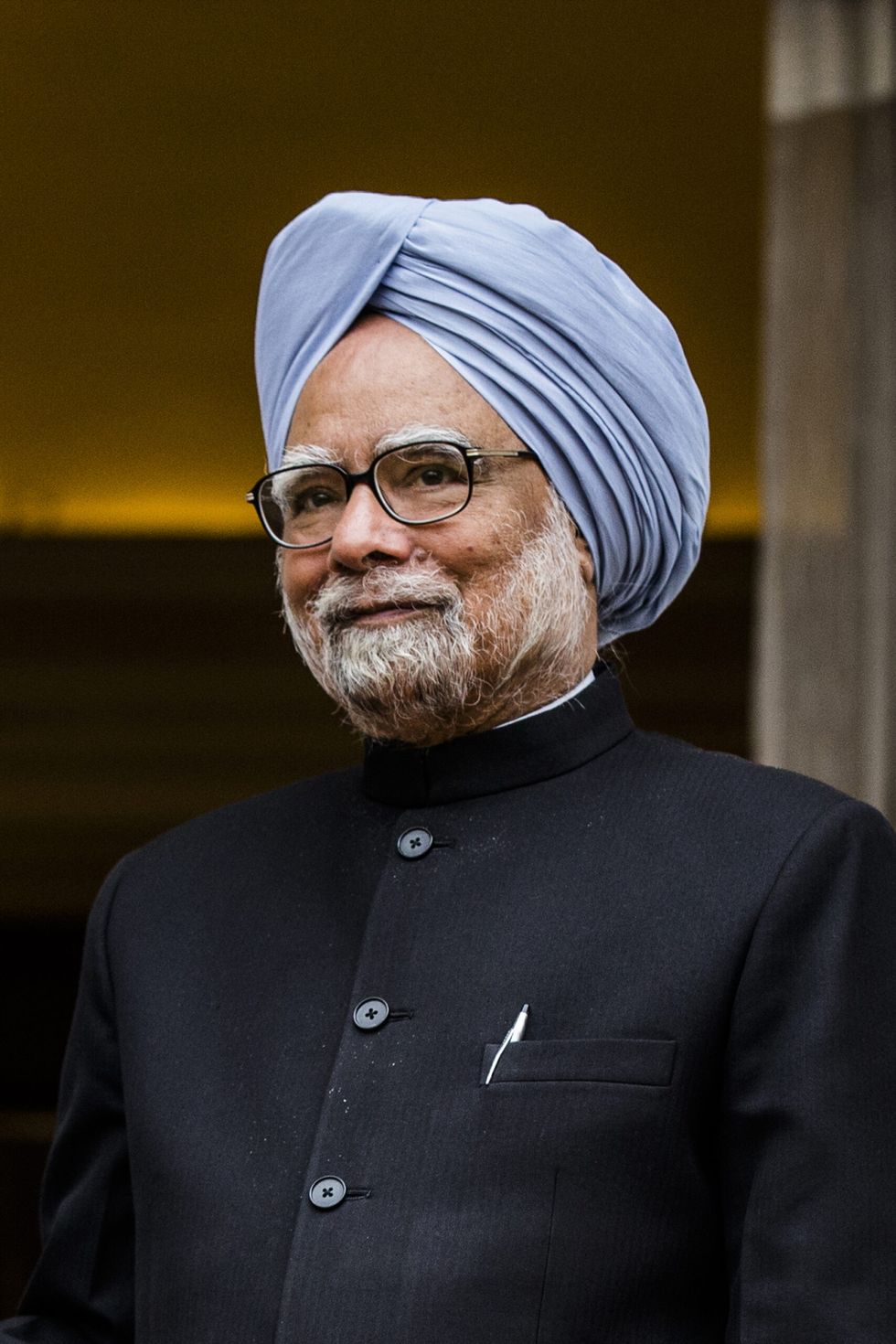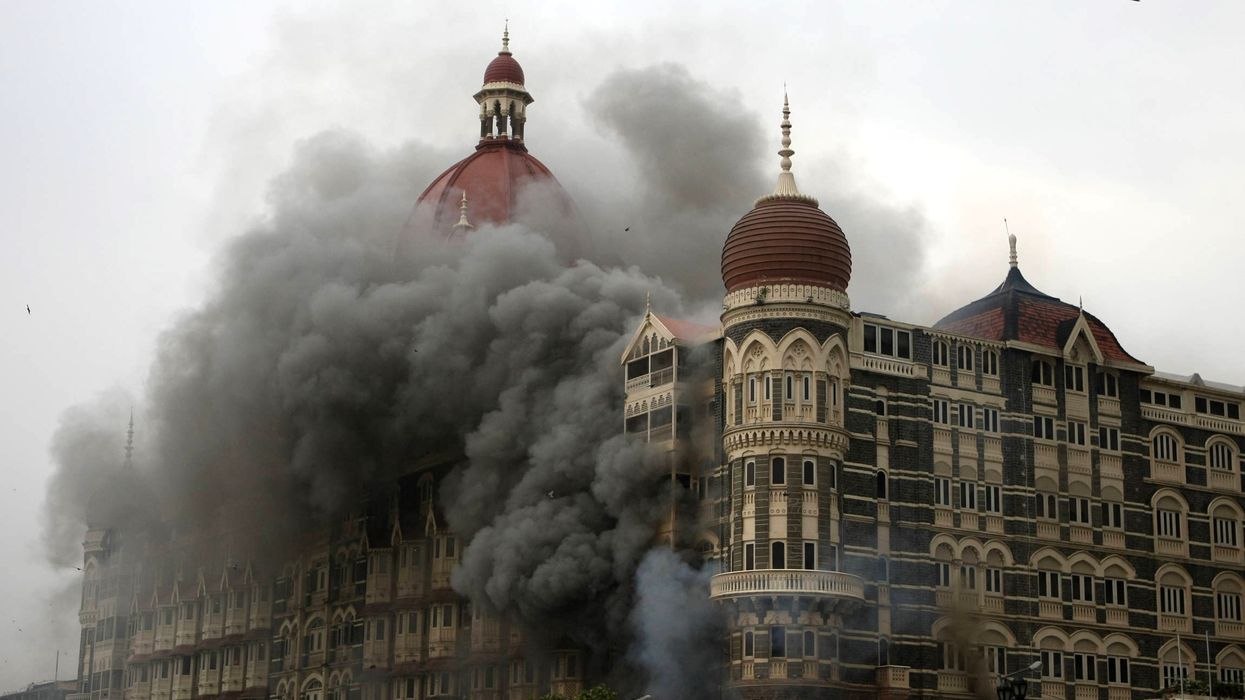THE New York Times opinion writer, Thomas L Friedman, has reminded the Israeli government of former Indian prime minister Manmohan Singh’s wise decision not to retaliate when confronted with the horror of the Mumbai massacre in November 2008.
Friedman, who joined the paper in 1981, has won three Pulitzer Prizes. He is the author of seven books, including From Beirut to Jerusalem, which won the National Book Award.
There have been more than 2,000 responses to his article titled, “The Israeli Officials I Speak With Tell Me They Know Two Things for Sure.”
Friedman’s piece begins: “I am watching the Israel-Hamas war and thinking about one of the world leaders I’ve most admired: Manmohan Singh. He was India’s prime minister in late November 2008 when 10 Pakistani jihadist militants from the Lashkar-e-Taiba group, widely believed to be linked to Pakistan’s military intelligence, infiltrated India and killed more than 160 people in Mumbai, including 61 at two luxury hotels.
“What was Singh’s military response to India’s September 11?”
Friedman answers his own question:
“He did nothing.”
He goes on: “Singh never retaliated militarily against the nation of Pakistan or Lashkar camps in Pakistan. It was a remarkable act of restraint.

“What was the logic? In his book Choices: Inside the Making of India’s Foreign Policy, India’s foreign secretary (the most senior civil servant in India’s external affairs ministry) at the time, Shivshankar Menon, explained, making these key points: ‘I myself pressed at that time for immediate visible retaliation’ against the jihadist bases or against Pakistani military intelligence, ‘which was clearly complicit,’ Menon wrote. ‘To have done so would have been emotionally satisfying and gone some way toward erasing the shame of the incompetence that India’s police and security agencies displayed.’
“He continued, ‘But on sober reflection and in hindsight, I now believe that the decision not to retaliate militarily and to concentrate on diplomatic, covert and other means, was the right one for that time and place.’”
Friedman goes into the reasoning: “Chief among the reasons, Menon said, was that any military response would have quickly obscured just how outrageous and terrible the raid on Indian civilians and tourists was – ‘the fact of a terrorist attack from Pakistan on India with official involvement on the Pakistan side’ would have been lost. Once India retaliated, the world would immediately have had what Menon called a ‘ho-hum reaction’. Just another Pakistani-Indian dust-up – nothing unusual here.
“Moreover, Menon wrote, ‘an Indian attack on Pakistan would have united Pakistan behind the Pakistan army, which was in increasing domestic disrepute’, and ‘an attack on Pakistan would also have weakened the civilian government in Pakistan, which had just been elected to power and which sought a much better relationship with India than the Pakistan Army was willing to consider’. He continued, ‘A war scare, and maybe even a war itself, was exactly what the Pakistan army wanted to buttress its internal position.’
“In addition, he wrote, ‘a war, even a successful war, would have imposed costs and set back the progress of the Indian economy just when the world economy in November 2008 was in an unprecedented financial crisis’.
“In conclusion, said Menon, ‘by not attacking Pakistan, India was free to pursue all legal and covert means to achieve its goals of bringing the perpetrators to justice, uniting the international community to force consequences on Pakistan for its behaviour and to strengthen the likelihood that such an attack would not take place again’.”
Friedman sets out the differences: “I understand that Israel is not India – a country of 1.4 billion people, covering a massive territory. The loss of more than 160 people in Mumbai, some of them tourists, was not felt in every home and hamlet, as were Hamas’s killing of roughly 1,400 Israelis, the maiming of countless others and the kidnapping of more than 200 people. Pakistan also has nuclear weapons to deter retaliation.
“Nevertheless, it is instructive to reflect on the contrast between India’s response to the Mumbai terrorist attack and Israel’s response to the Hamas slaughter.”
Friedman sets out what might be the consequences of Israeli military action: “After the initial horror at the sheer barbarism of the Hamas onslaught on Israeli children, older adults and a dance party, what happened? The narrative quickly shifted to the brutality of the Israeli counterattack on Gazan civilians, among whom Hamas has embedded itself.
“The massive Israeli counterstrike overshadowed Hamas’s terrorism and instead made the organisation a hero to some. It has also forced Israel’s new Arab allies in the Abraham Accords to distance themselves from the Jewish state.”
He reckons there will also be consequences for Israel’s economy: “Meanwhile, with some 360,000 reservists called up, Israel’s economy will almost certainly be depressed if Israel’s ouster of Hamas from Gaza takes months, as predicted.”
Friedman says he has “sympathy for the terrible choices Israel’s government faced after the worst slaughter of Jews since the Holocaust. But it was precisely because I closely followed Singh’s unique reaction to the Mumbai terrorist attack that I immediately advocated a much more targeted, fully thought-through response by Israel. It should have called this Operation Save Our Hostages, and focused on capturing and killing the kidnappers of children and grandparents. Every parent could understand that.
“Instead, Benjamin Netanyahu’s government immediately raced into a plan to, as defence minister Yoav Gallant put it, ‘wipe out’ Hamas ‘from the face of the earth’. And in three weeks Israel has inflicted easily more than triple the number of civilian casualties and caused far more destruction in Gaza than Israel suffered, while committing itself to taking military control of Gaza – an operation, on a relative population basis, that is roughly equivalent to the United States deciding almost overnight to occupy half of Mexico.
“As I said, Israel is not India, and there is no way that it could be expected to turn the other cheek – not in that neighbourhood. But what is Netanyahu’s plan? The Israeli officials I speak with tell me they know two things for sure: Hamas will never again govern Gaza, and Israel will not govern a post-Hamas Gaza. They suggest that they will set up an arrangement similarly seen in parts of the West Bank today, with Palestinians in Gaza administering day-to-day life and Israeli military and Shin Bet security teams providing the muscle behind the scenes.”
Friedman did not think too much of this strategy: “This is a halfbaked plan. Who are these Palestinians who will be enlisted to govern Gaza on Israel’s behalf? What happens after a Palestinian working for Israel in Gaza is found murdered with a note pinned to his chest: ‘Traitor,’’ signed ‘the Hamas underground’.
“Israel should keep the door open for a humanitarian ceasefire and prisoner exchange that will also allow Israel to pause and reflect on exactly where it is going with its rushed Gaza military operation – and the price it could pay over the long haul.
“That is why I raise the Indian example. “Israel built an impressive society and economy, even if flawed, and Hamas took nearly all of its resources and built attack tunnels. Please, Israel, don’t get lost in those tunnels,” he warned. “I have always believed you can reduce the Israeli-Palestinian conflict since the early 1900s to one line – conflict, time out, conflict, time out, conflict, time out, conflict, time out, conflict and time out.”




